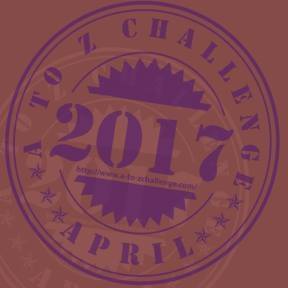I made a post a while back about earthquakes in Kansas (not a place people typically think of as quake prone). At the end of it I intentionally left a little note about how I have no stake in the 'predicting natural disasters' category, because there are things I wouldn't ever want to be right about. How that ties in with this will become apparent here in a bit.
Right now in Italy seven scientists are appealing a manslaughter conviction that most of the scientific community sees as a grave injustice. The short version--I'll provide links to the source material I'm using here in a second--is that a severely old mountain town in Italy suffered a quake in 2009 that killed 300 people and injured around 1500. More or less days after a government panel of officials were "quoted" as saying no such quake would occur.
There's a whole wealth of junk there, but let's do the links first.
The Aftershocks, by David Wolman. It's long, and occasionally heart-wrenching, but it's worth it.
Italian Scientists Appeal Absurd Conviction for Quake Deaths, also by David Wolman.
Now assuming you've read through all that, there are a whole handful of things that become immediately problematic. At what point does someone's bad decision making--even bad decision making that leads to a death--constitute criminal negligence?
I don't have an answer for that, any more than I have an answer for the conceptual responsibility of doomsayers. Half a world away, in my cozy little corner I can say if you're going to put the scientists on trial for ineffectually trying to derail the panic train, you should probably add in the guy who started that train rolling.
"But he didn't know what he was doing! They're scientists!"
True, but from what I'm seeing more or less everyone agrees the scientists were saying 'we don't know' too. So because they carry a degree their lack of knowledge (in that it's everyone's lack of knowledge because you cannot predict earthquakes with any accuracy) is criminal?
Also, I'm just gonna say that again. You cannot predict earthquakes with any accuracy.
Ditto for a whole range of other major natural disasters. Hurricanes are relatively slow moving and consistent--again, relatively--and Volcanoes generally give you a whole slew of warning signs. And yet still, sometimes they do things we don't expect. I don't think we need to get into the habit of assuming the people we think should know just whiffed it. We watch the clouds for tornadoes and rain fall indicators for floods, and after decades of work we've gotten the warning time to a general 'this may happen' from a 'holy sh*t it's happening now.'
What I find most interesting about that first article is the break-down of how much trouble human beings have with 'maybe' or 'improbable.' How the vast majority of us have problems conceptualizing a vaguely possible threat. And when I say it like that, it makes more sense. We aren't, generally speaking, built to handle possible threats. We're built to handle probable threats. "That fruit is very very bright and oddly colored, I probably shouldn't eat it." "That animal has very large teeth and also runs fast, I'll avoid him."
Even more, society has trouble with vagueness. When pushed, one of those Italian scientists--before the panel and utterly out of context--said an earthquake wouldn't happen. Because he was doing a sound bite for the news and we don't like maybe. We want yes or no. But flip that on its head and look at the response from every credible scientist ever. They don't like to give us yes or no.
Yes or No leave entirely too much room to be wrong.
So where do we go with this in the future (I will tie this into Sci-Fi Friday if it kills me)? It's hard to read something like this and not envision a world, fifty or a hundred years in the future, where all of our 'warning' scientists have gone away. Nobody studies vectors for the CDC any more, if you're wrong they'll throw you in jail. Nobody chases Tornadoes and tries to find better monitoring systems, one failure and you've been sued for all you've got.
But what about the other direction? What happens in a world where scientists stop and realize "regular" humans have trouble with their definition of probability, and find ways to bridge the gap? Where they circumvent the talking heads and deliver their responses, however accurate they can make them, in a way the people they're making them too will understand?
I don't have an answer for that either, but it's an interesting question.
Come back Monday, there is a high probability I will have something random and silly to share.

 RSS Feed
RSS Feed
